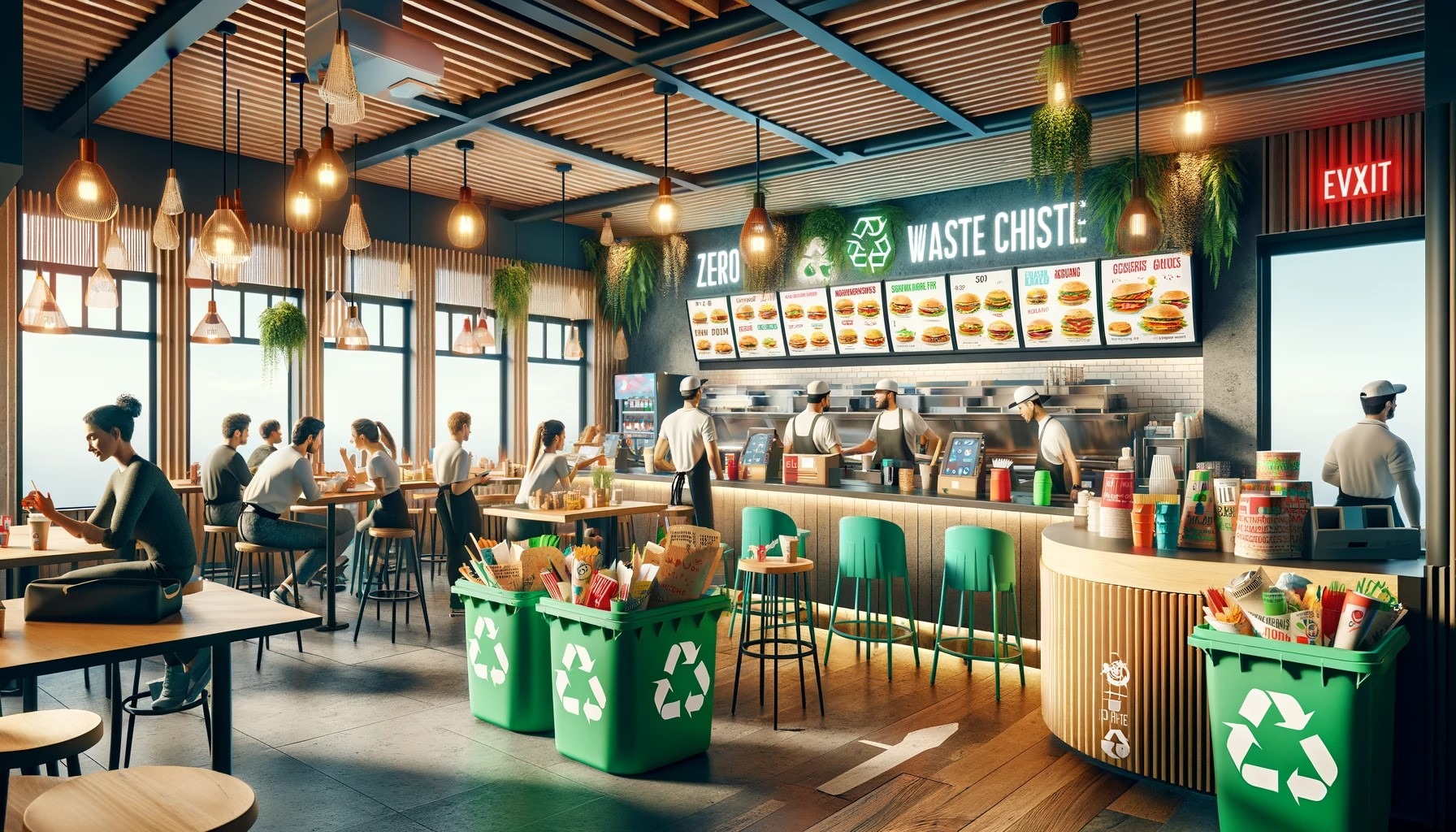Introduction: In today’s fast-paced world, the concept of a zero-waste kitchen is not just an idealistic vision but a necessary step towards sustainability and environmental responsibility. For restaurants in the Mid-Atlantic Region, this concept goes beyond just managing used cooking oil. It’s about embracing a holistic approach to waste reduction across all areas of operation. This guide aims to shed light on practical strategies that can transform your kitchen into a zero-waste kitchen. By focusing on innovative practices and simple changes, restaurants can significantly minimize their environmental footprint, one step at a time.
The journey towards a zero-waste kitchen is both rewarding and challenging. It requires a shift in mindset, from viewing waste as an inevitable byproduct of the restaurant business to seeing it as an opportunity for innovation and improvement. With the right strategies in place, restaurants can not only reduce their waste but also enhance their operational efficiency, save costs, and contribute to a healthier planet. This guide is designed to help you navigate this journey, offering insights into how to effectively manage waste, including but not limited to cooking oil, and turn sustainability into a core aspect of your business model.

Key Takeaways
- Sustainability is not just a buzzword; it’s a business model that can save costs and attract more customers.
- Comprehensive waste management involves more than just recycling cooking oil; it includes reducing food waste, optimizing resource use, and implementing eco-friendly practices.
- Employee engagement is crucial; training and involving your staff in sustainability practices can lead to more effective waste reduction.
- Innovation in waste management can open up new opportunities for restaurants to be leaders in environmental responsibility.
- Partnerships with waste management companies, like Mopac, can provide valuable support and resources in achieving your zero-waste goals.
The Different Types of Waste
Restaurants generate a wide variety of waste, from food scraps and used cooking oil to packaging and disposable utensils. Identifying these different types of waste is the first step towards managing them effectively. By categorizing waste into biodegradable, recyclable, and non-recyclable, restaurants can develop targeted strategies for minimizing their environmental impact.
The Impact of Waste on the Environment
The environmental impact of restaurant waste is significant. Food waste contributes to greenhouse gas emissions, while improper disposal of cooking oil can harm waterways and wildlife. By understanding the environmental consequences of their waste, restaurants can make more informed decisions about waste management practices that contribute to sustainability.
 Implementing a Recycling Program
Implementing a Recycling Program
Recycling is a fundamental aspect of creating a zero-waste kitchen. Restaurants can work with local recycling programs to ensure that materials like glass, plastic, and cardboard are properly recycled. Additionally, partnering with companies like Mopac for the collection and recycling of used cooking oil is an effective way to manage this specific type of waste.
Reducing Food Waste
Food waste is a major issue in the restaurant industry. Strategies for reducing food waste include menu planning to minimize excess, using inventory management software to track food usage, and donating unsold food to local charities. These practices not only reduce waste but also contribute to community well-being.
Eco-friendly Packaging and Utensils
Switching to eco-friendly packaging and utensils is another effective strategy for reducing waste. Biodegradable or compostable options can significantly decrease the amount of non-recyclable waste generated by restaurants.
Conclusion
The journey towards a zero-waste kitchen is an ongoing process that requires commitment, innovation, and community involvement. By adopting sustainable practices, restaurants in the Mid-Atlantic Region can lead by example, demonstrating that environmental responsibility and business success go hand in hand. Implementing the strategies outlined in this guide can help restaurants reduce their waste, save costs, and contribute to a healthier planet.
As Mopac, we are committed to supporting our partners in this journey. With our expertise in collecting and recycling used cooking oil, we aim to be more than just a service provider; we want to be a valuable partner in your business, bringing you important operational information and emerging trends. Together, we can make zero-waste kitchens a reality, paving the way for a more sustainable and prosperous future.
FAQs
- What are the first steps towards creating a zero-waste kitchen? Start by conducting a waste audit to understand the types and amounts of waste your restaurant produces. Then, implement segregation practices for recycling and composting.
- How can restaurants reduce their usage of plastic? Consider switching to biodegradable or reusable alternatives for packaging, utensils, and straws. Educate your customers about the benefits of reducing plastic use.
- Can small restaurants also implement zero-waste practices? Absolutely. Zero-waste practices are scalable and can be adapted to fit the size and capacity of any restaurant. Small steps can lead to significant environmental impacts.
- What are some cost-effective zero-waste initiatives for restaurants? Implementing a composting system, reducing food waste through better inventory management, and engaging customers in a bring-your-own-container program are cost-effective strategies.
- How can restaurants engage customers in their zero-waste journey? Educate your customers about your sustainability efforts through marketing and in-restaurant signage. Offer incentives for customers who participate in your zero-waste initiatives, such as discounts for using reusable containers.
At Mopac, we value the relationship we develop with our customers, creating partnerships focused on efficiency and sustainability. Our team offers reliable, consultative services tailored to meet your unique needs. Let us help you make a meaningful impact with our comprehensive collection & recycling solutions.




